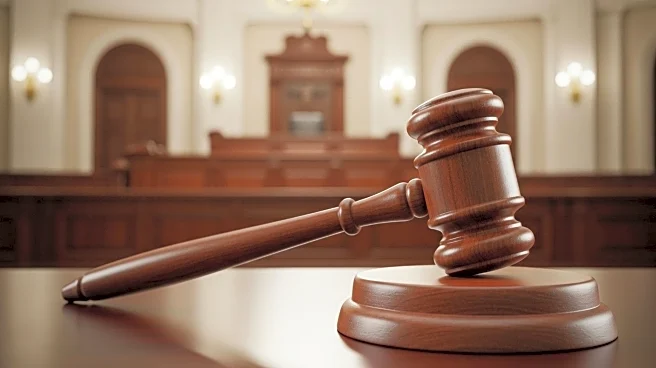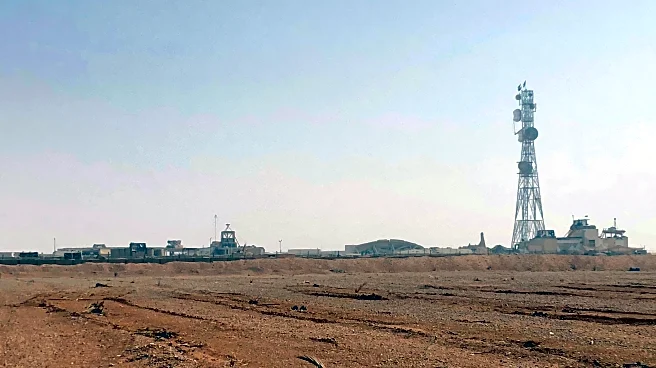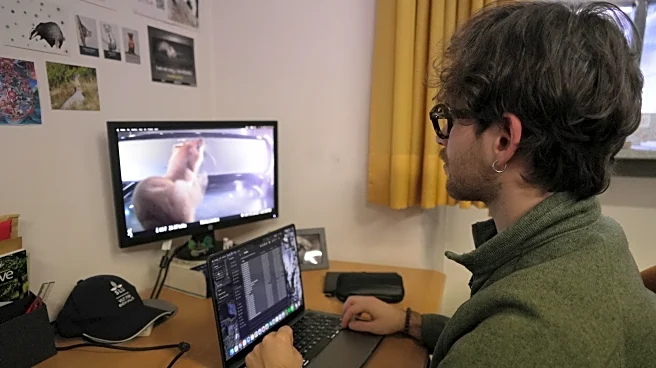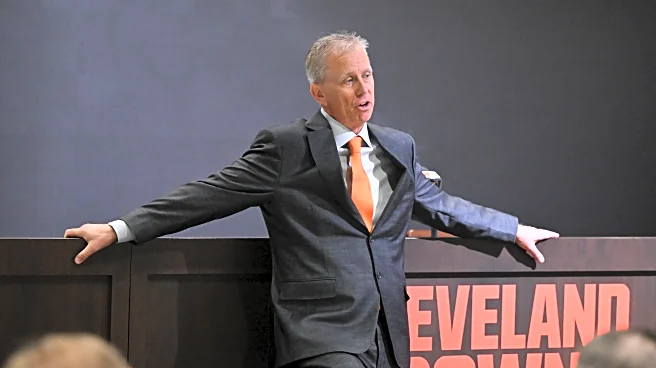What's Happening?
The U.S. Supreme Court has ruled that Federal Reserve Governor Lisa Cook can continue in her position while awaiting oral arguments scheduled for January. This decision comes amidst President Trump's efforts to remove Cook from the Fed's Board of Governors, citing allegations of mortgage fraud. Cook has denied any wrongdoing related to her mortgage applications for properties in Michigan and Georgia. The Supreme Court's order defers Trump's request to stay a federal district court's injunction against Cook's removal, allowing her to participate in upcoming Federal Open Market Committee meetings. The court's decision is seen as a significant moment in maintaining the Federal Reserve's independence from political interference.
Why It's Important?
The Supreme Court's decision to allow Lisa Cook to remain in her role at the Federal Reserve is crucial for maintaining the central bank's operational stability and independence. This ruling prevents immediate political interference in the Fed's decision-making process, which could have broader implications for U.S. monetary policy. Cook's continued participation in the Federal Open Market Committee meetings ensures that the Fed can proceed with its planned interest rate adjustments, which are vital for economic stability. The case also highlights the ongoing tension between the executive branch and independent federal agencies, potentially setting a precedent for future disputes over the removal of federal officials.
What's Next?
The Supreme Court is set to hear oral arguments in January regarding President Trump's appeal to remove Lisa Cook from the Federal Reserve Board. The outcome of this hearing could have significant implications for the balance of power between the presidency and independent federal agencies. Stakeholders, including the Department of Justice and Cook's legal team, will present their arguments, and the court's decision will likely influence future cases involving the removal of federal officials. Meanwhile, Cook will continue to participate in key Fed meetings, influencing monetary policy decisions through the end of the year.
Beyond the Headlines
This case underscores the delicate balance between political authority and the independence of federal institutions like the Federal Reserve. The legal battle over Lisa Cook's position may prompt discussions about the criteria for removing federal officials and the potential for political motivations to influence such decisions. The case could lead to broader debates on the role of the judiciary in mediating conflicts between the executive branch and independent agencies, potentially affecting how future administrations interact with federal institutions.











